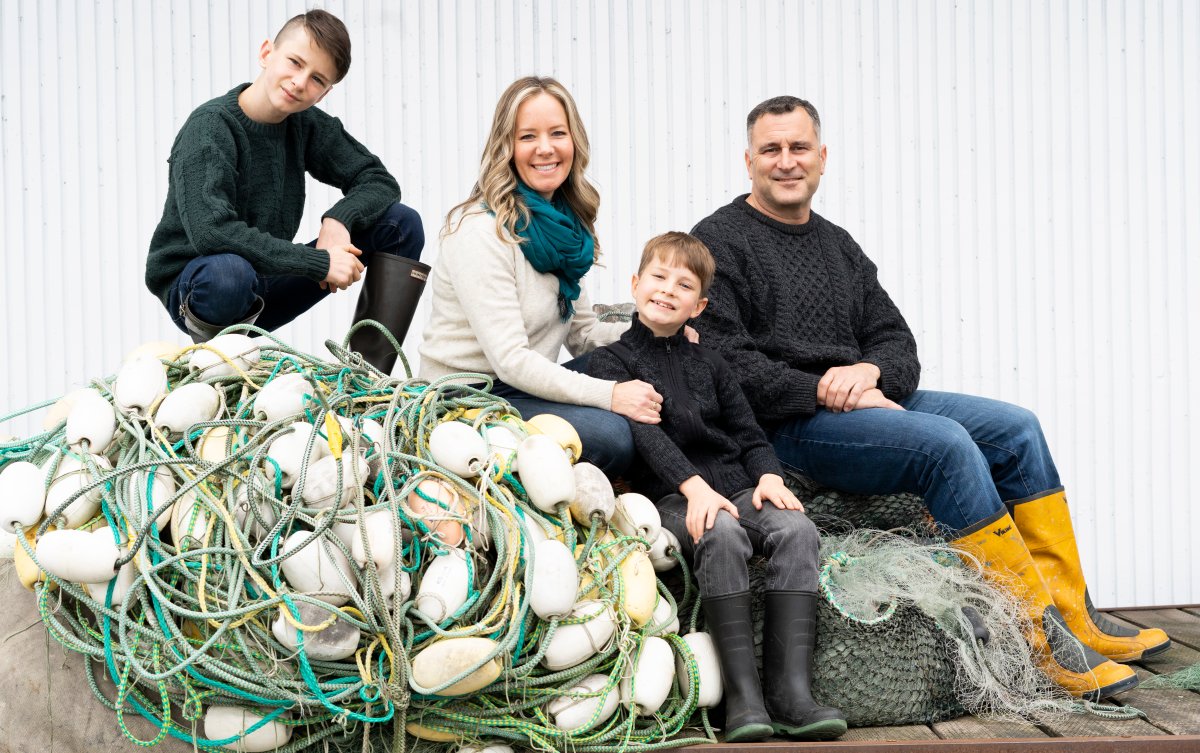Lots of Canadians are familiar with community-supported agriculture, often in the form of boxes of produce fresh from the farm. Now it’s possible to get seafood in a similar way.

Skipper Otto is a Vancouver-based community-supported fishery (CSF) that ensures members across the country are receiving fish right out of Canadian waters.
The concept was growing pre-pandemic, and business has tripled since March 2020, according to Sonia Strobel, co-founder and CEO of Skipper Otto. “People’s habits have changed, and they started thinking more about where their food comes from,” she says.
In partnership with Skipper Otto, we look at why the CSF is working not only to get fish onto Canadians’ plates, but also to reconnect fishing families with Canadian consumers.
Skipper Otto supports 40 fishing families in B.C. and Nunavut, whose catches go to thousands of members across Canada. Each member pre-purchases credits for the year, which entitles them to a share of the catch.
A weekly box is difficult to do with fish, Strobel says, so she designed a buy-down system. For example, Skipper Otto members might decide that their families will eat $500 worth of fish in a year, so they pre-pay that amount. Throughout the year, they can pick and choose whatever seafood they want, and the price comes off their share. The fish is then delivered to pick-up locations across the country where members can retrieve it.
The concept was born in 2008 after Strobel married into a fishing family and found out how tough life can be for fishers. “They take a lot of risk on and don’t know what they’re going to get paid. Canada also exports about 80 per cent of its seafood and we import about the same amount,” she says. “There was just this real disconnect between fishing families and their communities. I thought there had to be a better way.”
Strobel began developing her idea for a CSF while she and her husband, Shaun, were both still working as high school teachers. Eventually, the business grew enough that Strobel quit teaching in 2014 to focus on Skipper Otto full-time.
In fact, Skipper Otto has grown from only 40 members to 7,700 in the past 13 years. But Strobel says it’s not hard to understand why the concept has caught on. “For Canadians who love seafood, it’s difficult for them to know what they’re getting and to get good-quality, local seafood.”
As seafood moves along supply chains, it can lose quality and become increasingly expensive, given how many steps are sometimes involved. But with Skipper Otto, “the benefit to members is they know what they’re getting,” Strobel says.
Every piece of seafood from the CSF comes with a photo and bio of the person who caught it, plus details of where, when and how it was caught. It even includes the scientific name of the species, so members know exactly what they’re eating. “They get total traceability,” Strobel says.
READ MORE: Canada has a ‘seafood fraud’ problem and it’s because of mislabelling, report finds
That closer connection with consumers is one aspect Jocelyn Dick appreciated about Skipper Otto. “I loved that they tell the story of the fisher. Nobody really knows how hard we work to catch the fish. Our story never gets told really,” says Dick, a multigenerational Tseshaht fisher based in Port Alberni, B.C., who started fishing with Skipper Otto this summer.
Melissa Collier of Courtenay, B.C., says that working with Skipper Otto meant new opportunity. Her family fishery, West Coast Wild Scallops, often struggles to find a market for their pink and spiny scallops, also known as swimming scallops, which are unfamiliar to some consumers. With the CSF, however, members are often happy to try something new in addition to popular items such as Pacific salmon and tuna. The fact that members are willing to eat with the ecosystem means less uncertainty for Collier and her husband, Joel, and their family.
“Sometimes people are hesitant to try it because they are so different. So it’s great we can use this direct-to-consumer approach but also teach people to eat something that’s a bit different but amazing,” Collier says.
Joining the CSF has also helped West Coast Wild Scallops thrive since the start of the pandemic in 2020. “Until then, the majority of our catch was going to the restaurant industry,” Collier says. “Then the pandemic hit, and we’d stocked up on our catch and thought we’d be out all of this money.”
Instead, Collier remembers, Skipper Otto called, saying its membership was booming. Canadians wanted to support local fishing families, and with people cooking more at home, there was increasing demand for diverse products. “And we ended up selling out — that was demand coming from Skipper Otto.”
That demand continues to be strong, as Skipper Otto is seeing greater interest from regions across Canada from Victoria to Ottawa, including Calgary, Toronto, Winnipeg and more.
“So many of our members say they eat so much more seafood now because they trust where it’s coming from and they now have that direct line and made that commitment to fishing families,” Strobel says.
READ MORE: Women in agriculture use online tools to build supportive communities
To find out more about how community-supported fishing works or to become a member, visit the Skipper Otto website.







